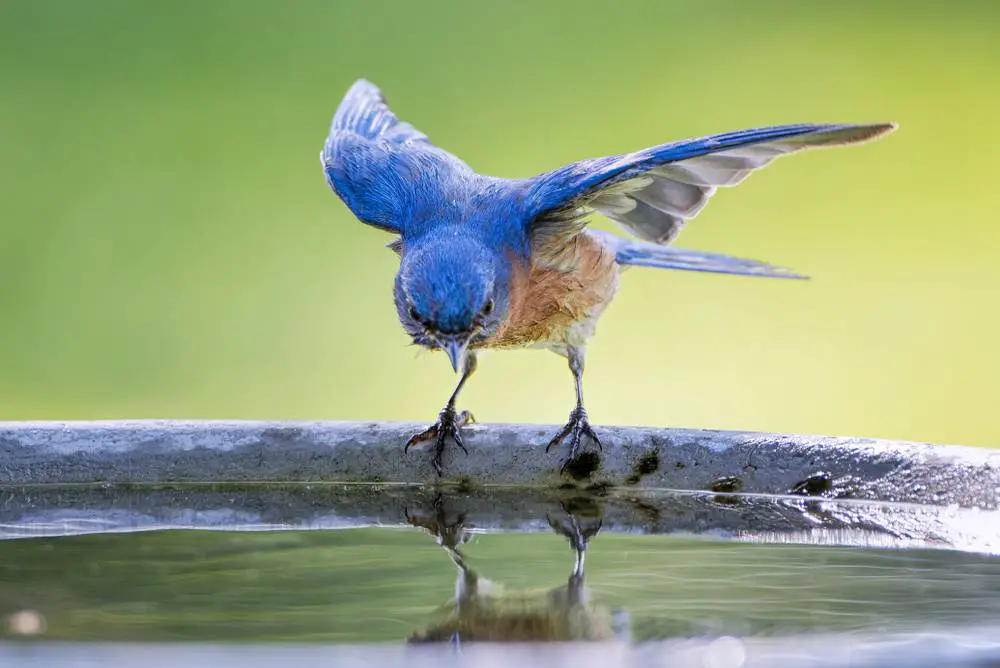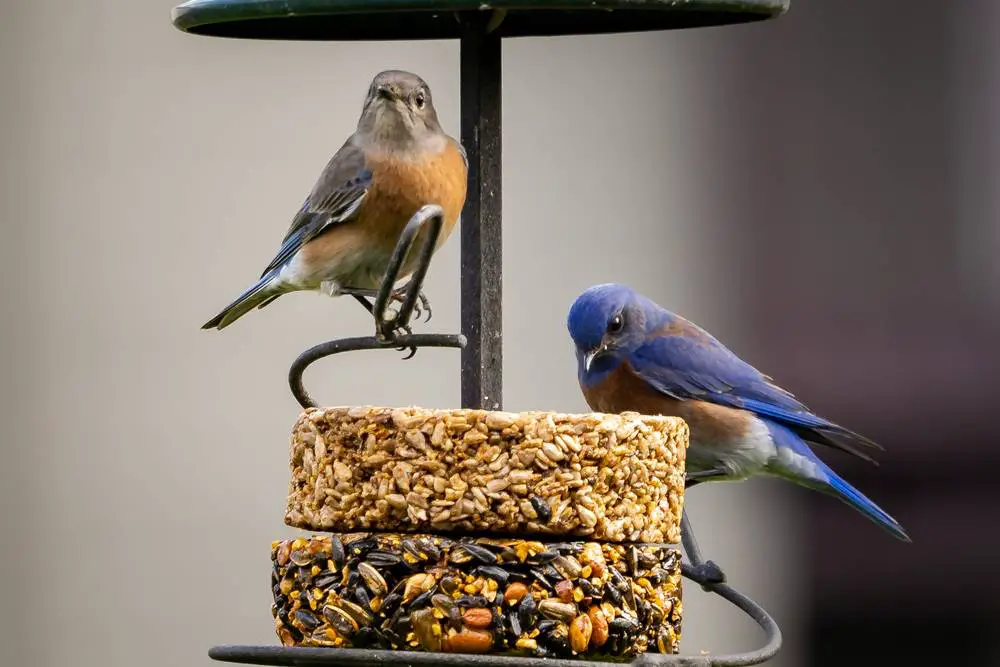Live mealworms are a favorite of Bluebirds but providing them every day has a few caveats. For instance, even if you add a little cornmeal or bran in their container a number of them may die if you are only putting them out a little at a time. Putting them out every day can get a little expensive, too, and sometimes they even smell funny.
So, do Bluebirds eat dried mealworms? The answer is that yes, most Bluebirds will eat dried mealworms. You’ll need to train them a little to do this and there are a few things that you can do to make the dried worms more appealing for Bluebirds as well.
Let’s explore dried mealworms and your backyard Bluebirds and what do bluebirds eat?
Are dried mealworms good for Bluebirds?
The first thing that you might be wondering is whether heated or freeze-dried mealworms still retain their nutritional qualities.
The good news is that they are indeed still nutritious and good for birds to eat.
They aren’t as good as live mealworms, of course, but they still have a good balance of fats, proteins, and fiber that will keep your Bluebird guests healthy and happy.
You are going to need to get the local Bluebirds used to eating dried mealworms, however, but all it takes is some live mealworms, some dried ones, and a little patience.
Training Bluebirds to eat dried mealworms

In order to get your Bluebirds to try dried mealworms in the first place, you need to be a little sneaky about it.
You can put out some regular mealworms and simply mix in a few dried ones.
Over the next few days, reduce the ratio of live worms to the dried ones, and finally, just add dried mealworms and see how it goes.
While Bluebirds are good at avoiding black, dead mealworms, when they are eating up some live ones they are sure to accidentally get a dried mealy and once they see that they aren’t so bad then your Bluebirds will develop a taste for them.
You can speed things along by mixing some dried mealworms in with your seeds and other feeder mixes and before you know it, your Bluebirds will start keeping an eye out for refill-time.
Other ways you can make dried mealworms more attractive to Bluebirds
While most Bluebirds will eat dried mealworms, you do get the occasional picky one.
Thankfully, there are a few more tricks that you may employ in order to make the dried worms a little more attractive for these birds.
One method that some birdwatchers employ is simply putting some dried mealworms in a small container with a few drops of vegetable oil.
Let them sit for about half an hour and then drain the oil and after this, you must mix them with a little flower, oats, and some seed such as Nyjer thistle.
Note, if you use the oil method then you must mix it with the flour and oats, as it needs to be soaked up entirely to ensure that the bird doesn’t get oil on its feathers.
Also, don’t use oil that has already been used for cooking, as it may have absorbed some salt content that makes it unsuitable for birds.
Alternately, you can keep things simple by simply boiling up a little water and pouring it over your dried mealworms enough that the tops of the worms are covered. Some will float to the surface but this is normal.
Let them soak for 30 minutes and at the end of this time, they will have absorbed the water. They will be larger, plumper, and pale in color.
Your rehydrated mealworms are now ready to serve!
What do I do if I run out of dried mealworms?
Bluebirds enjoy a number of foods and if you set up your feeder with a few of their favorites then you’ve got a little ‘backup’ just in case you run out of those prized mealworms.
First, while it’s not technically a food, during the spring and summer Bluebirds need extra calcium and at this time they will eat up crushed eggshells if you leave some out.
Whether this is to get the calcium or to aid in digestion we aren’t 100% certain, but Bluebirds and many other birds respond well to crushed eggshells in the feeders.
Beyond the eggshells, try leaving out some of the following:
- Suet nuggets
- Raisins
- Apple chunks
- Hulled or broken up Black Oil Sunflower seeds
Summary – Do Bluebirds Eat Dried Mealworms?
Dried mealworms are good for your Bluebirds and have the advantage of being inexpensive and easy to store.
They have a long shelf life and only require that you store them in a cool, dry place, and best of all, they won’t try to escape when you are serving them to the birds.
So, be sure to pick up some dried and live mealworms and you can get started training your Bluebirds to eat them.
Before you know it, they’ll be snapping up those new mealworms just as fast as you can put them out!


